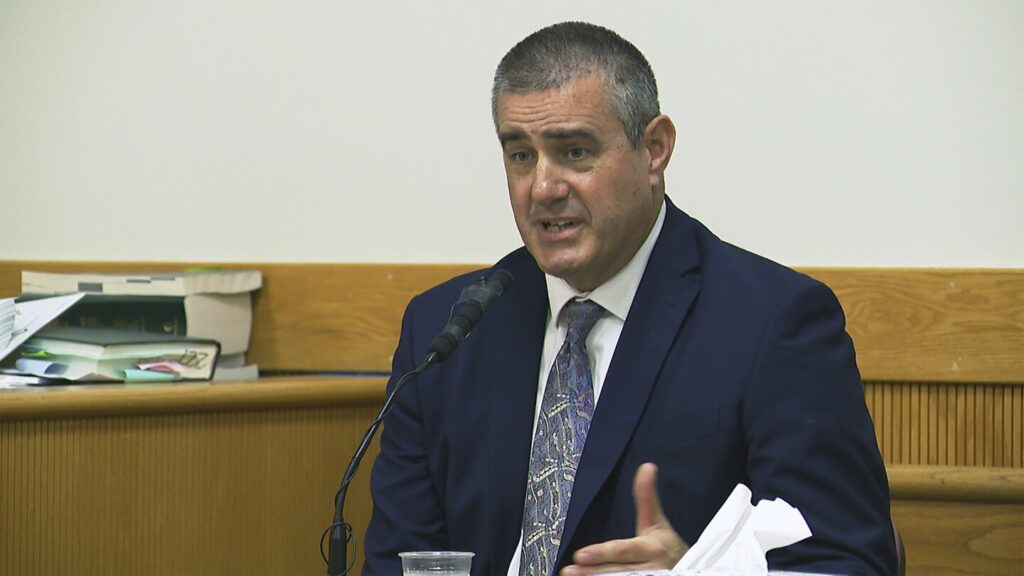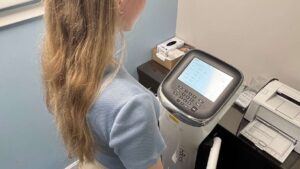
PROVIDENCE, R.I. (AP) — In a case that has gripped the community and raised questions about the boundaries of authority figures in schools, a jury has found Aaron Thomas, a former high school basketball coach from Rhode Island, not guilty of second-degree child molestation and second-degree sexual assault. The verdict, delivered on Monday, relates to Thomas’ controversial practice of conducting naked body fat tests on male student-athletes over several decades.
Instead, Thomas was found guilty of misdemeanor battery, a lesser charge agreed upon by the attorneys in the final days of the trial. This decision comes after a nearly six-week trial where the defense argued that while the tests were inappropriate, they did not constitute a crime.
Defense and Prosecution Arguments
Defense attorneys maintained that Thomas did not engage in the tests for sexual gratification, a crucial element for the charges he faced. John MacDonald, Thomas’ defense attorney, expressed satisfaction with the verdict, stating, “We are very satisfied that the jury saw the case as we saw it, no sexual intent whatsoever.”
Conversely, prosecutors argued that Thomas exploited his position to gain access to young boys under the guise of a pseudo-scientific program. Attorney General Peter Neronha emphasized the impact on the victims, stating, “Above all else, this case is about the victims who suffered greatly behind closed doors.” Neronha criticized the defense’s justification, highlighting that winning should never trump well-being.
Legal and Historical Context
The legal proceedings were constrained by Rhode Island’s statute of limitations, which is currently three years for second-degree assault. Neronha has advocated for extending this period to ten years, which would have enabled further charges against Thomas. Under current law, misdemeanor battery carries a maximum penalty of one year in prison and a fine of up to $1,000. Thomas is scheduled for sentencing on June 26.
The charges against Thomas were limited to incidents involving two former students, one of whom was under 14 at the time. These incidents occurred in September 2000 and February 2002. The defense questioned the reliability of the testimonies, citing the mental health struggles of one of the accusers and suggesting that monetary compensation was the underlying motive in a separate civil lawsuit.
Testimonies and Expert Opinions
During the trial, Thomas admitted to seeing over 600 students, with approximately 80% removing their underwear during the tests. The procedure involved pinching various body areas, including near the groin and buttocks, conducted in private settings such as a small closet-like room and later in Thomas’ office. Thomas conceded that removing underwear was unnecessary, and experts testified that pinching near the groin is not scientifically supported for determining body fat.
The court heard from more than a dozen students, law enforcement officers, body composition experts, and former school officials. The testimonies painted a picture of a coach who, while respected and beloved, may have overstepped professional boundaries.
Implications and Future Considerations
This case has sparked a broader conversation about safeguarding practices in schools and the responsibilities of educators. It underscores the importance of clear guidelines and oversight in student-coach interactions to prevent potential abuses of power.
The outcome also raises questions about the adequacy of current laws in addressing such cases. As the community processes the verdict, discussions about policy changes and preventative measures are likely to continue.
The sentencing of Aaron Thomas will be closely watched, as it may set a precedent for how similar cases are handled in the future. Meanwhile, the debate over extending the statute of limitations for sexual assault cases in Rhode Island remains a critical issue for lawmakers and advocates alike.







